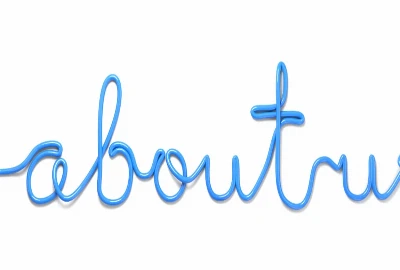Sneaking Into a Secret Basement Album Drop: What the Hype Is Really Like

In an era where music is streamed instantly, leaked on social media, and algorithmically recommended, the idea of physically showing up to a hidden location to hear an album first might sound like a throwback. Yet that’s exactly what’s happening with the growing trend of the secret basement album drop. These invite-only gatherings bring a raw, intimate energy that’s missing from today’s hyper-commercialized music industry. Instead of logging into Spotify at midnight, fans are slipping through side doors, descending concrete staircases, and waiting shoulder to shoulder in dimly lit basements for an artist to share their work live.
Why does this matter? Because these events capture something we’ve been losing: the communal thrill of music discovery. For Gen Z especially, raised on screens and endless scrolling, the underground drop offers authenticity, scarcity, and real-world connection. It’s not just about hearing songs before they hit the charts—it’s about being part of a story, a movement, and a memory you can’t replicate online.
This post dives into what it’s really like to sneak into one of these events, how the culture around them is reshaping the industry, and why the hype reveals more about us than just our music taste.
The Atmosphere: Dim Lights, Big Anticipation
Walking into a secret basement album drop feels different from any other music event. There’s no marquee out front, no glossy posters, and no corporate sponsorship logos plastered across the walls. Instead, the setting is stripped down—flickering string lights, maybe some mismatched couches, a DIY bar stocked with cheap beer, and graffiti-covered walls that feel more authentic than any stage design. The vibe is intentionally low-key, but the energy is electric.
Everyone in the room knows they’re part of something rare. The anticipation builds as whispers ripple through the crowd—“He’s almost here,” “She’s bringing the whole crew,” “Nobody’s heard this yet.” That scarcity factor, the knowledge that you’re among the first to hear an unreleased album, makes the room buzz with adrenaline. In many cases, attendees had to chase cryptic clues on social media or be part of a tight-knit fan circle to even get the address. That shared effort to get in creates an instant sense of community.
When the artist finally steps up—sometimes with just a mic and laptop, sometimes with a full band—the intimacy hits hard. Unlike stadium tours, there’s no barrier between fan and performer. You might find yourself just a few feet away, watching raw emotion spill out in real time. Even mistakes, forgotten lyrics, or technical hiccups become part of the magic. The crowd doesn’t mind; they cheer louder, knowing they’re seeing something unfiltered.
The atmosphere at these events reveals what we secretly crave: not spectacle, but sincerity. While festivals and tours will always have their place, the basement album drop strips music down to its most human element—artist, song, audience, and nothing else.

Why Basement Drops Have Become Cultural Gold
Beyond the thrill of exclusivity, basement album drops are cultural moments that resonate deeply with how Gen Z approaches music. Today’s audiences are weary of overproduced launches and PR campaigns that feel more like product drops than creative milestones. When music is first introduced in a basement instead of a billboard, it signals that the artist values authenticity and community over mass-market strategies.
Scarcity plays a huge role. Psychology shows that we attach more value to experiences that are rare and fleeting. A basement show with 100 people feels infinitely more precious than a live stream with millions. Fans who attend can say, “I was there first,” gaining bragging rights that extend beyond fandom into social identity. It’s not just about hearing the music—it’s about being written into the mythology of an artist’s journey.
Culturally, these drops also tie into Gen Z’s desire for intimacy and real-world connection. After years of pandemic isolation and digital overload, small gatherings feel sacred. Music isn’t just entertainment; it’s a form of belonging. In these hidden spaces, fans aren’t just passive listeners but participants in a cultural ritual.
Even brands and the broader industry have taken notice. While they can’t fully replicate the underground energy without losing its authenticity, they’ve started borrowing elements: limited-release vinyl, surprise pop-up shows, or QR codes that lead to hidden tracks. Still, nothing compares to the whispered invitation to a basement where the next big sound is about to unfold.
These events reveal something essential about our cultural moment: we’re no longer impressed by loud marketing campaigns. What we want is connection, scarcity, and meaning. The basement album drop delivers all three.

What the Hype Reveals About Us
On the surface, sneaking into a basement to hear unreleased tracks looks like fandom at its most obsessive. But beneath the hype, these events highlight deeper truths about how we experience music today.
First, they underscore our hunger for authenticity. After years of curated social feeds, perfectly engineered pop tracks, and endless corporate tie-ins, we crave moments that feel raw and unpolished. Basement drops remind us that music doesn’t have to be glossy to be powerful—it just has to be real.
Second, they reflect our longing for community. When you’re packed into a room with strangers, all waiting for the first beat to drop, you’re sharing a moment that can’t be replicated later on Spotify. That communal thrill is part of what makes live music magical, and these events strip it down to its core.
Third, the hype exposes how much we value exclusivity and identity. Attending a basement drop isn’t just about music—it’s about being able to say, “I was there.” In a world where everything is instantly shareable, having an experience that can’t be fully captured on video or explained in a post makes it more valuable. It’s a form of cultural capital, giving fans status within their communities.
Finally, these events reveal how the future of fame is shifting. For emerging artists, hosting a secret basement album drop isn’t just a release strategy—it’s a way of building a dedicated community from the ground up. Fans who show up early are more likely to stick around for the long haul, creating grassroots loyalty that no record label budget can buy.
The hype, in other words, isn’t empty. It’s a mirror, showing us what we want music to be: honest, intimate, and unforgettable.





